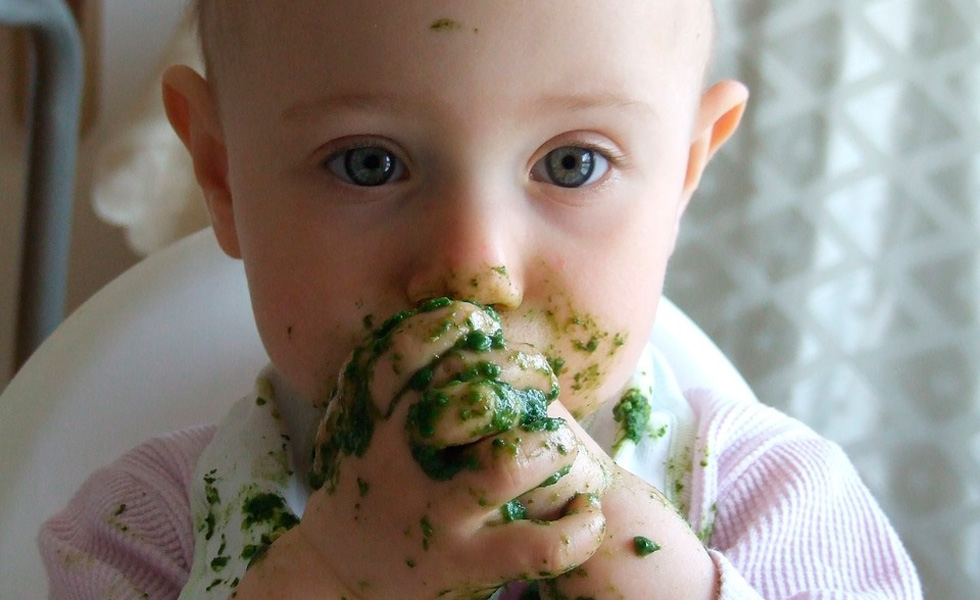If there's one thing frazzled new parents crave, it's that their baby sleeps well.
Now, research suggests that the odds for good infant slumber rise when solid foods are introduced relatively early.
The British findings contradict some long-held guidelines on infant feeding, however, and were met with mixed reviews by experts in the United States.
Dr. Michael Grosso directs pediatrics at Northwell Health's Huntington Hospital in Huntington, N.Y. He agreed with the findings, which he said are "debunking the widely held belief that infants woke up at night -- or didn't -- for reasons that have nothing to do with food."
But neonatal dietitian Meghan Reed, of Lenox Hill Hospital in New York City, disagreed. She said that "while there was a short period of time in which the infants [in the study] seemed to sleep better, it can be argued that the benefits [of early solid foods] do not outweigh the risks and possible future negative effects."
Currently, the American Academy of Pediatrics recommends exclusive breast-feeding for new babies for the first six months of life. The AAP also notes that introducing solid foods to baby before 4 months of age has been linked to excess weight gain and body fat as children grow.
In short, conventional wisdom by experts has been that infant sleep is not influenced by how babies are fed.
Many parents have long disagreed, however. To help sort the issue out, researchers at King's College London tracked the sleep and nutrition of more than 1,200 infants in the United Kingdom who were breast-fed only for their first three months.
The babies were then divided into two groups, with one group continuing to breast-feed exclusively for another three months, while the other group started solid foods while still being breast-fed.
Infants in the group that began solid foods at 3 months slept longer, woke less frequently at night and had fewer serious sleep problems than those who were breast-fed exclusively until 6 months of age, the researchers reported July 9 in JAMA Pediatrics.
Those differences peaked at 6 months, with the group introduced to solid foods earlier sleeping for nearly 17 minutes longer per night and nearly two hours longer per week, and the night waking decreasing from just over two times per night to 1.74 times per night.
"The results of this research support the widely held parental view that early introduction of solids improves sleep," said study co-lead author Gideon Lack, professor of pediatric allergy at King's College London.
"While the official guidance is that starting solid foods won't make babies more likely to sleep through the night, this study suggests that this advice needs to be re-examined in light of the evidence we have gathered," Lack said in a school news release.
U.S. pediatrician Grosso agreed, saying the study could prompt a new look at guidelines.
"This whole area seems to have been controversial for decades," he noted. "Generations of pediatricians on both sides of the Atlantic have encouraged parents to delay the introduction of solid foods, [in part] based on expert opinion which said that this would limit food allergy."
But Grosso noted that recent studies have suggested that the early and controlled introduction of certain allergens -- peanut, most notably -- can actually help prevent food allergies.
Likewise, with infant sleep, the new study may support early solid foods as a helpful measure, he said.
"A full tummy may turn out to be as good for making infants sleepy as it is for us big folk," Grosso.
But Reed remained cautious. She still backs the directive that "if an infant seems hungry before 6 months of age, it is recommended to increase the volume of breast milk provided rather than introducing solid foods early."
Reed said the study also left out one important group: babies who, for whatever reason, are formula-fed. She stressed that while breast milk is strongly preferred, it's not clear what the study might mean for the millions of U.S. babies who gain their nutrition via bottle-feeding.
And Reed suggested that "this study could also be identified as subjective. One parent's perception of a 'very serious sleep problem' might be 'not a problem at all' to another."
Fuente: www.upi.com
